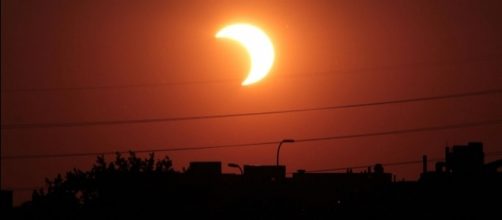On August 21, a total Solar Eclipse will stretch across the United States in an extremely rare solar event. In order to properly observe such an event without suffering permanent eye damage, special eclipse viewing glasses are required. In anticipation of the event, companies have been trying to cash in by selling said glasses, even if they are fake and would do nothing to protect a viewers eyes.
On the look out for fake eclipse glasses
Their fake glasses may bear the name American Paper Optics (APO), which is one of the legitimate companies that dominate the eclipse viewing glasses market.
There are easily noticeable signs that the glasses are fake if one knows what to look for. The filters on APO's glasses are known for their distinctive oval shape. These fakes also include ISO labels on their products to seem legitimate.
They are also metal coated on one side, whereas fake glasses are black on both sides. Viewers who purchase the glasses not knowing they are fake could be in for serious trouble. Viewing an eclipse without proper equipment can result in damage to the eyes, some of which can be permanent.
Where can real eclipse glasses be purchased?
All sanctioned and approved eclipse viewing glasses have been vetted by the American Astronomical Society (AAS). Many of these fake glasses are coming from Asia and the discovery of some many fakes has become a problem for the AAS.
The AAS mandates that manufacturers of the glasses provide data from independent laboratory tests that glasses are up to snuff.
The results have to meet the International Organization for Standards (ISO) 12312-2 standard that mandates viewers to be thousands of times darker than normal sunglasses. Manufacturers also had to give them a list of companies authorized to resell the glasses. AAS has a list of reputable vendors on its website (eclipse.aas.org) that includes's APO, Rainbow Symphony, Celestron and many others. Their site also has a list of approved companies that sell these glasses.
What is the 'Great America Eclipse'?
The total solar eclipse, which is being called the “Great America Eclipse”, is the first one visible on the continental United States since 1979, with the next one not coming until 2045.
According to the Great American Eclipse website, anywhere between 1.8 and 7.4 million people are expected to travel to locations along the path of totality. This is when the moon will briefly block out the sun completely.
You won't notice much, if any, darkening during a partial solar eclipse. For darkness, you need to be in the path of totality. pic.twitter.com/f7akd94syY
— National Eclipse (@NationalEclipse) August 8, 2017


